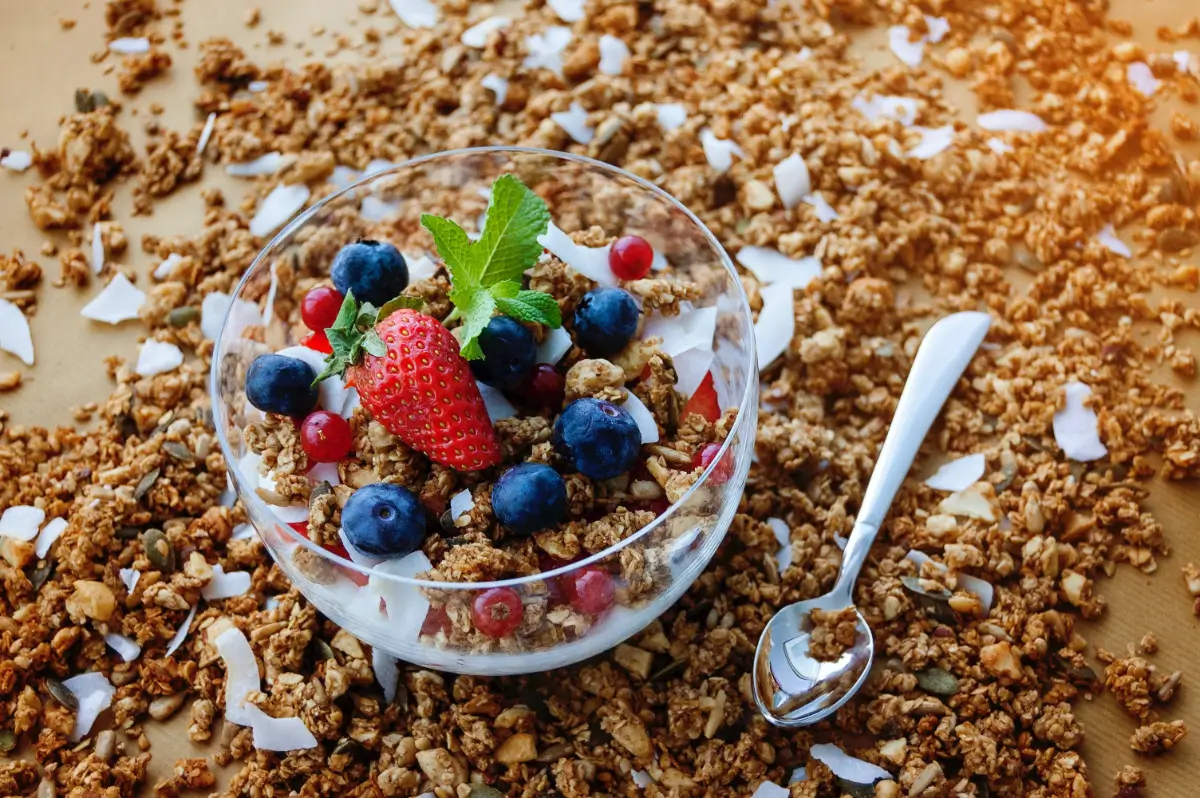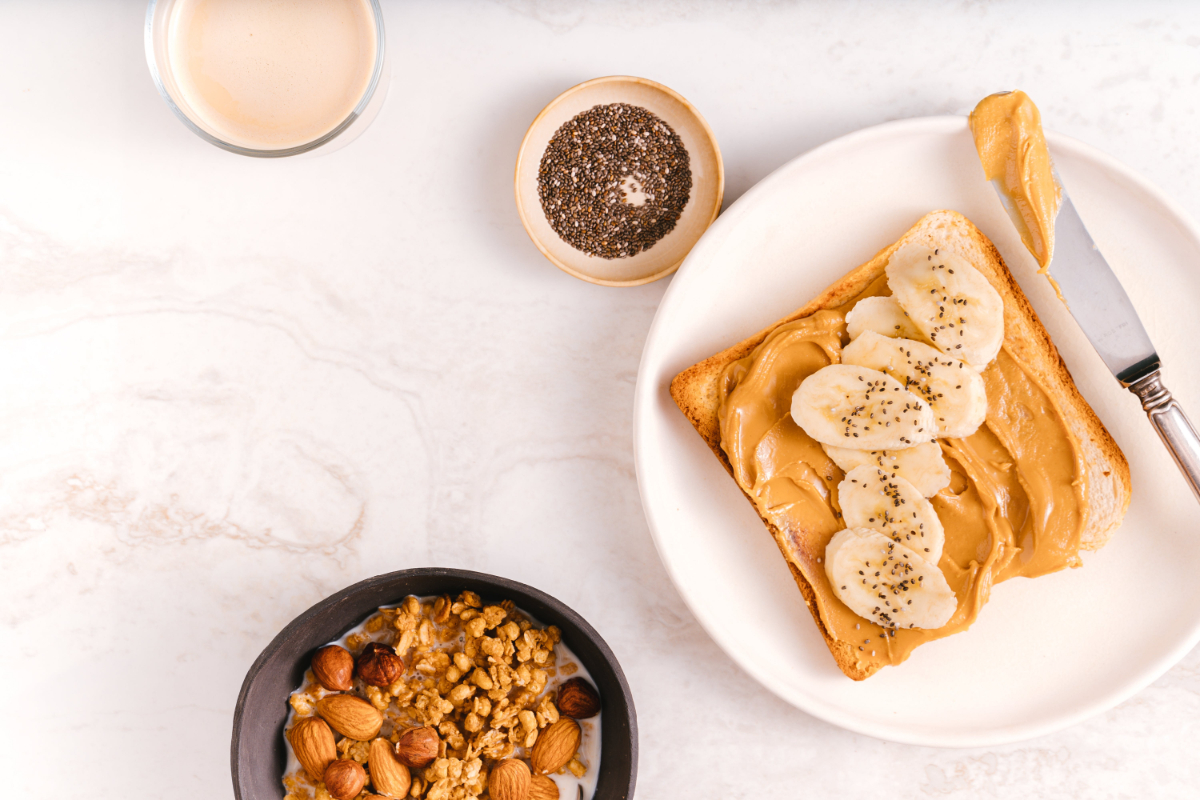When it comes to eating healthy, we all know that sugar is a big no-no. But what if I told you that some of the ‘diet’ foods you’re eating are secretly loading you up with sugar?
Shocking, right?
We often trust the labels that scream ‘low-fat’ or ‘diet’, thinking we’re making a smart choice. But the truth is, many of these foods are hiding a sweet secret. They’re packed with sugar, which is why it’s so important to understand what’s really in the foods we eat, especially those marketed as healthy.
Here are nine foods that aren’t actually as healthy as they sound.
Peanut Butter
Let’s start with a favorite: peanut butter.
Now, don’t get me wrong, peanut butter can be a great source of protein and healthy fats. But, and this is a big but, not all peanut butters are created equal. Many brands sneak in added sugars and hydrogenated oils, turning this healthy treat into a sugar-loaded trap.
So, the next time you reach for that jar of peanut butter, check the label. Are there added sugars? If so, it might be best to put it back on the shelf.
Low-Fat Yogurts
Moving on to another ‘diet’ food: low-fat yogurts.
It sounds healthy, right? The label ‘low-fat’ must mean it’s good for you.
Well, not so fast.
Many low-fat yogurts are loaded with added sugars to make up for the lack of fat. This means that while you’re thinking you’re making a healthy choice, you’re actually consuming a lot of sugar.
The next time you’re in the dairy aisle, take a moment to check the sugar content on your favorite low-fat yogurt. You might be surprised by what you find.

Canned Soups
And what about canned soups? These convenient meal options can also be a hidden source of sugar, especially the tomato-based ones.
Tomatoes are naturally high in sugar, and many soup manufacturers add even more to balance the acidity and enhance the flavor.
So, while a can of tomato soup might seem like a healthy choice, it could actually be adding to your daily sugar intake.
Smoothies
Smoothies are usually considered a healthier drink choice than sodas and fruit juices, but did you know that store-bought smoothies can be loaded with sugar? This is especially true for those with added sweeteners or fruit purees.
And while making your own smoothies at home can be a healthier choice, it’s important to be mindful of the ingredients you’re using. Remember, even natural sugars from fruit can add up quickly.
The next time you’re craving a smoothie, consider making your own and controlling the ingredients and sugar content.
Fruit Juice
While it might seem like a healthy choice, even those labeled as ‘100% fruit juice’ can be loaded with sugar. In fact, some fruit juices can have sugar levels similar to sugary soft drinks! This is because the sugar in fruit becomes concentrated when it’s turned into juice.
Always check the label for sugar content in the juice before you buy and consume it in small doses only.
Granola and Trail Mix
Granola and trail mix can be healthy snacks as they contain ingredients like oats, dried fruits, nuts, and seeds. The problem is, they often come with a hefty dose of added sugars and high calorie counts.
Many brands add sugar to make their products more palatable, turning what could be a healthy snack into a sugar-laden treat.
Before you grab that bag of granola or a handful of trail mix at the office, check the label. Look for products with no added sugars and a low calorie count.

BBQ Sauce and Ketchup
We often slather these two sauces onto our foods without a second thought, but did you know they can be a hidden source of sugar?
Many brands of BBQ sauce and ketchup contain high amounts of added sugars, turning your healthy grilled chicken or veggie burger into a sugar bomb.
The next time you’re at the grocery store, take a moment to check the labels on your favorite condiments. You might be shocked by the amount of sugar you find.
Salad Dressings
Many of us think that opting for low-fat or fat-free versions of our favorite salad dressings is a healthier choice. However, these are another so-called diet food that can be high in added sugars.
Manufacturers add sugar to these dressings to enhance the flavor that’s lost when fat is removed. So, while you might be saving on calories from fat, you could be adding to your sugar intake.
The next time you’re buying salad dressing, take a moment to examine the label, and leave the overly sugary ones at the store.
Conclusion
As you can see from out list, it’s crucial to be aware of the hidden sugars in ‘diet’ foods. While these foods might seem like healthier choices, they can often contribute to an increased sugar intake.
Reading nutrition labels is key to making informed food choices. Look for products with no added sugars and a low calorie count.
By being mindful of what you’re consuming, you can take control of your diet and make healthier choices. Remember, it’s not just about reducing calories; it’s also about reducing sugar.
